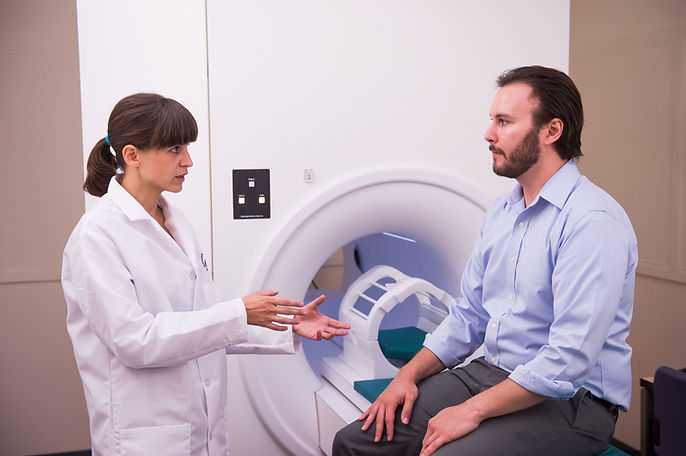About Our Work
Understanding Multiple Sclerosis (MS)
Multiple sclerosis (MS) is a chronic disease that affects the central nervous system — the brain and spinal cord — which coordinates many of the body’s functions. In MS, the immune system mistakenly attacks the protective sheath (myelin) around nerve fibers, disrupting communication between the brain and the rest of the body.
MS affects millions of people worldwide, with over 2 million individuals currently living with the condition. This growing impact highlights the urgent need for better treatments and a deeper understanding of the disease.
The Challenge of Progressive Multiple Sclerosis (SPMS)
MS can take different forms, and a key concern is disease progression. Many people diagnosed with relapsing-remitting MS eventually develop secondary progressive MS (SPMS), usually 25 to 30 years after their initial diagnosis.
SPMS is especially challenging because disability accumulates over time and is often irreversible. While treatments can help manage symptoms and reduce relapses in earlier stages, they are generally less effective at slowing or reversing progression in SPMS. This gap underscores the urgent need for new therapeutic approaches.

Photo: Ilena George and Daniel Reich, National Institute of Neurological Disorders and Stroke, National Institutes of Health

RESTORE: Laying the Groundwork for Innovation
RESTORE is a 15-month project preparing for the CLOSER clinical trial. Its goal is to ensure the research is carefully planned, ethical, and shaped by the MS community.
RESTORE and the upcoming CLOSER trial focus on advanced cell therapies (ACTs), specifically neural stem cells (NSCs), which may help repair the nervous system and address unmet needs in progressive MS.
Key activities include:
-
Refining the trial design to make it scientifically robust.
-
Engaging clinical collaborators to bring together expert teams.
-
Establishing an advisory board of researchers, clinicians, and community representatives.
-
Incorporating patient and public input to guide the work.
-
Addressing ethical considerations to ensure safety and transparency.
-
Managing the project effectively and keeping open communication.
Together, these steps lay a strong, responsible, and inclusive foundation for the CLOSER trial and the potential to make meaningful progress for people living with progressive MS.
Neural Stem Cells and Their Potential
Neural stem cells (NSCs) are special cells with the ability to develop into different types of cells in the nervous system. This unique flexibility makes them promising candidates for treating neurological conditions like multiple sclerosis (MS).
NSCs have two main potential benefits for people living with MS:
-
Immune system modulation: NSCs can influence the immune system, which is responsible for the damaging inflammation seen in MS. By helping regulate these immune responses, NSCs may reduce further nerve damage.
-
Nervous system repair and regeneration: NSCs have the ability to replace or repair damaged nerve cells and support the restoration of neural connections. This could help rebuild parts of the nervous system that have been damaged by MS, potentially improving function and slowing disease progression.
This combination of immune modulation and neurorestoration offers a new approach to tackling progressive MS — not just managing symptoms, but addressing the underlying damage. While research is ongoing, NSCs represent a promising path toward therapies that could slow, halt, or even reverse some aspects of MS progression.

National Institute of Neurological Disorders and Stroke/NIH

National Center for Complementary and Integrative Health, National Institutes of Health
CLOSER: Evaluating Neural Stem Cell Therapy
The CLOSER trial is the planned follow-up to RESTORE. It is a Phase IIb Experimental Medicine human Trial (EMhT) testing human allogeneic neural stem cells (NSCs) in people with non-active SPMS. The treatment is planned to take place in Europe, under strict ethical and regulatory oversight.
The goal of the trial is to determine whether NSC transplantation can be neuroprotective and neurorestorative, potentially slowing or repairing damage caused by progressive MS.
Key points:
-
Who: Adults with non-active secondary progressive MS
-
What: Transplantation of neural stem cells
-
Where: Conducted in Europe
-
Why: To evaluate safety, feasibility, and early signs of benefit
-
Collaboration: Multi-disciplinary team and patient advisors guide the trial
CLOSER represents a critical step toward new cell-based therapies, providing important insights for future studies and hope for people living with progressive MS.
Disclaimer: The CLOSER clinical trial is not yet active or funded. This information reflects planned research and objectives for future development.